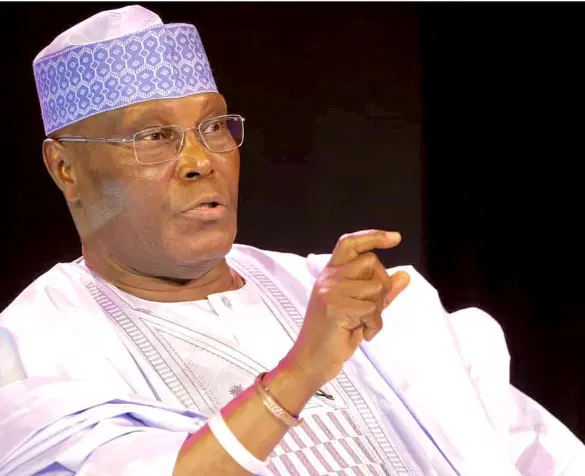Former Vice President Atiku Abubakar has accused Senate President Godswill Akpabio of abusing women, even during his tenure as the governor of Akwa Ibom State.
His statement comes amid the ongoing sexual harassment allegations against Akpabio by suspended Senator Natasha Akpoti-Uduaghan.
Atiku made these remarks during an interview on the program Untold Stories with journalist Adesuwa Giwa-Osagie.
When asked whether there were corruption allegations against Akpabio during his time as governor, Atiku responded,
“Yes. Not only was he corrupt, but he also had a history of abusing women.”
His statement has added weight to the ongoing debate about the conduct of public officials, especially those in leadership positions.
In addition to addressing Akpabio’s alleged misconduct, Atiku also criticized the current leadership of the National Assembly.
When asked whether he was surprised by how quickly the National Assembly approved the state of emergency, he remarked,

“No. The leadership is corrupt, and I have no apologies for saying that. They could do anything. The Senate President is known for such behavior, even as a governor.”
Atiku was also questioned about his potential candidacy in the 2027 presidential elections and the formation of a coalition to challenge the current administration.
Addressing this, he stated, “In 2014, we had a similar merger, with several candidates contesting.
We all ran for president and one emerged, and we all supported him. Nigeria has never been in greater need of credible leadership than now.”
His comments indicate that discussions about opposition unity may already be in progress.
The allegations against Akpabio and Atiku’s statements have fueled debates on social media and among political analysts.
Meanwhile, human rights organizations and women’s advocacy groups have urged authorities to take allegations of misconduct against public officials seriously.
Calls for thorough investigations into the claims have been made, with many insisting that accountability should not be compromised, regardless of a leader’s position.
The controversy surrounding the Senate President has once again highlighted the need for ethical governance and leadership built on integrity.













